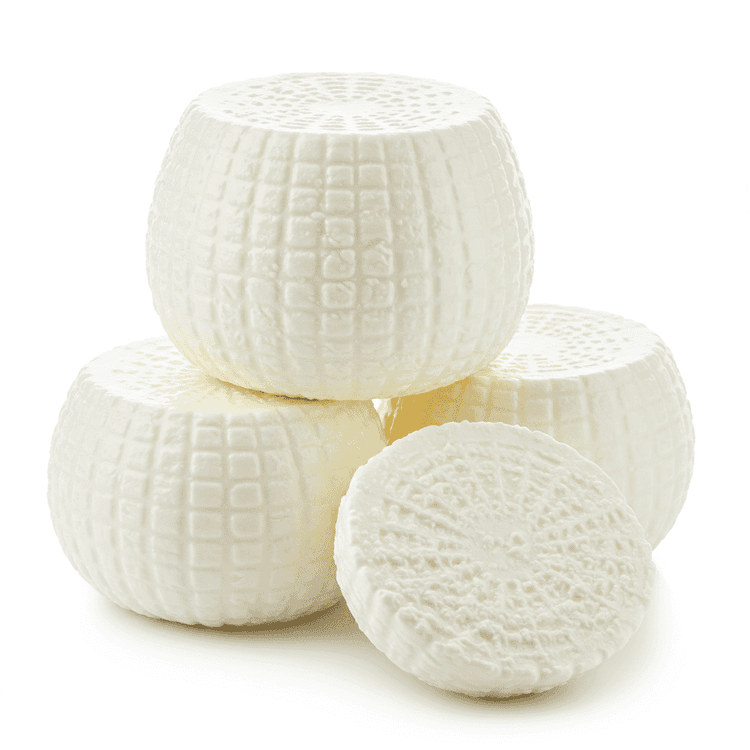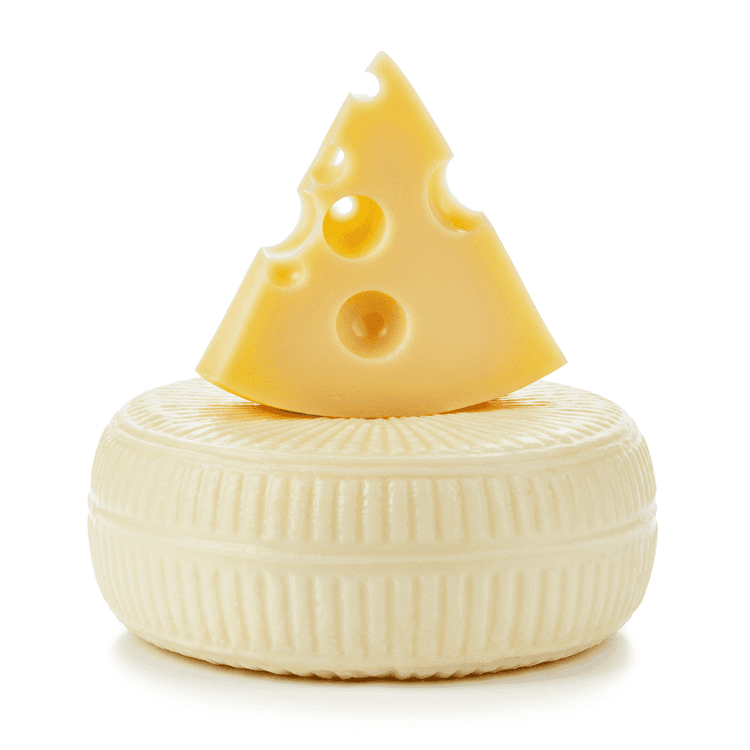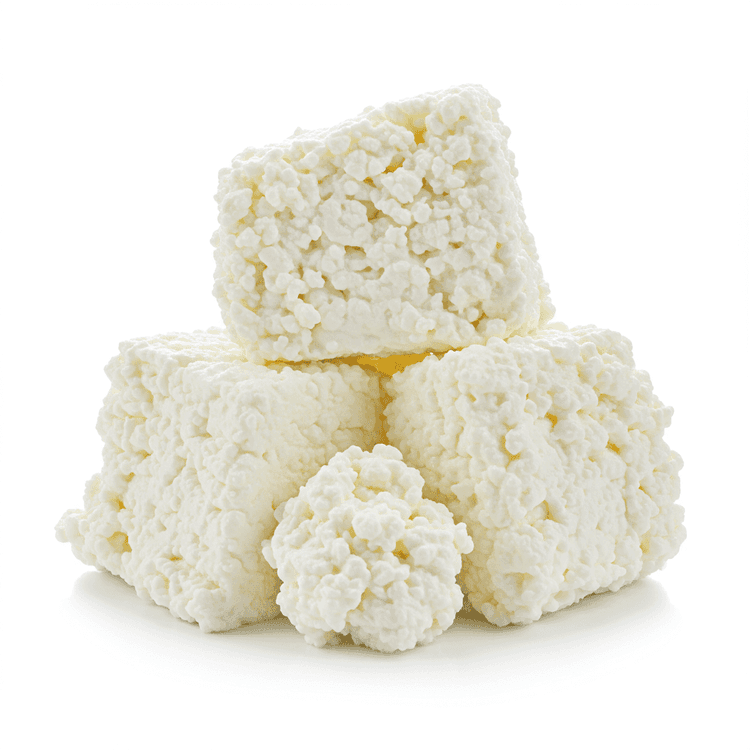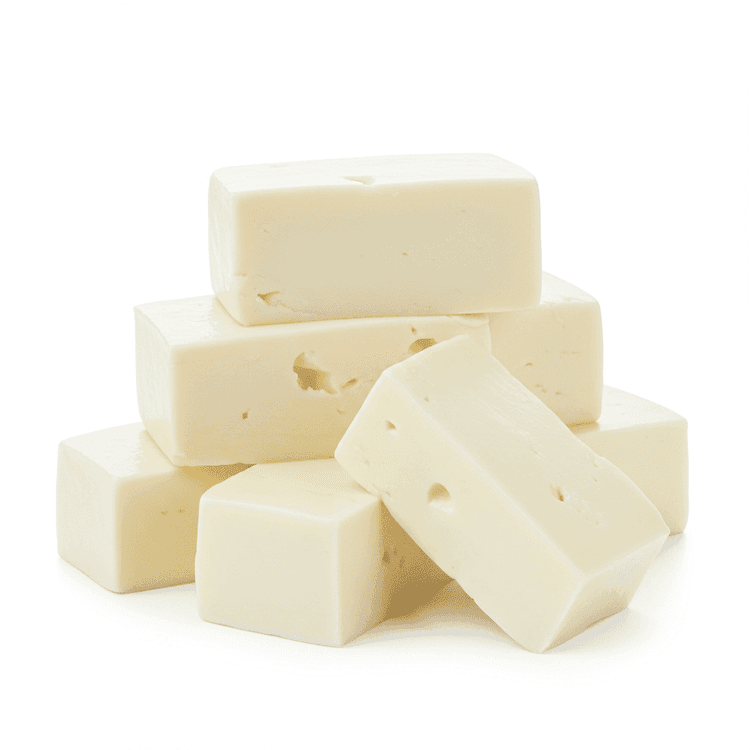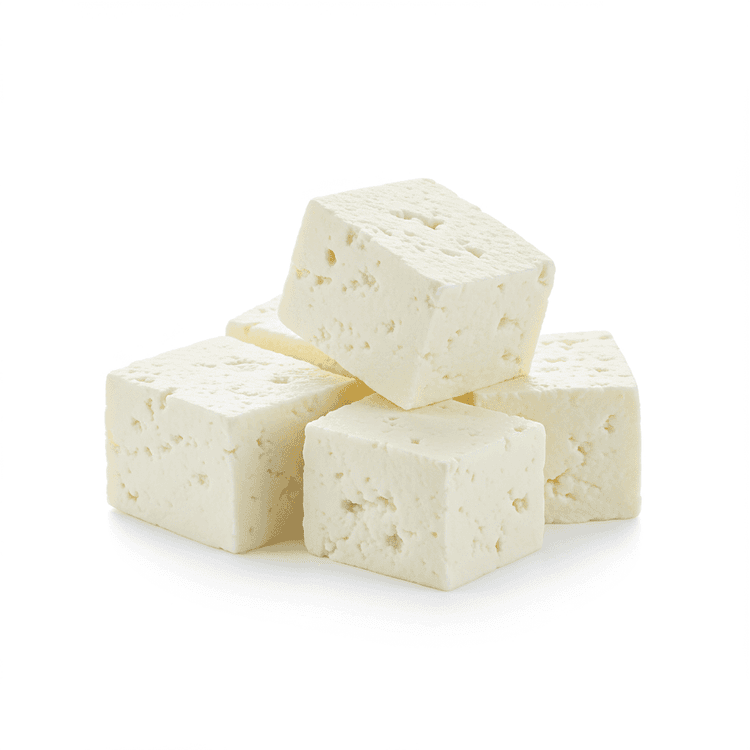
Paneer
Paneer is a fresh, non-aged Indian cheese known for its mild, creamy flavor and firm, crumbly texture. Made from curdled milk and an acidic agent like lemon juice or vinegar, paneer is a versatile ingredient that holds its shape when cooked, making it ideal for frying, grilling, or simmering in rich curries. Its white appearance and neutral taste make it a perfect canvas for absorbing spices and flavors, making it a staple in Indian vegetarian cuisine and a popular choice for protein-rich dishes.
Common Uses
- Used in classic Indian curries like Paneer Butter Masala or Palak Paneer, where it absorbs the flavors of rich, spiced gravies.
- Grilled or pan-fried as a protein-packed addition to salads, wraps, or kebabs.
- Crumbled and mixed into fillings for stuffed parathas or samosas, adding a creamy texture.
- Incorporated into desserts like Rasgulla or Sandesh, showcasing its mild sweetness and soft texture.
- Stirred into rice dishes like Paneer Pulao or biryanis for added richness and substance.
- Used as a meat substitute in vegetarian recipes, providing a hearty and satisfying alternative.
Nutrition (per serving)
Nutrition (per serving)
Calories
265.0kcal (13.25%)
Protein
18.3g (36.6%)
Carbs
1.2g (0.44%)
Sugars
0.8g (1.6%)
Healthy Fat
5.0g
Unhealthy Fat
13.1g
% Daily Value based on a 2000 calorie diet
Nutrition (per serving)
Calories
265.0kcal (13.25%)
Protein
18.3g (36.6%)
Carbs
1.2g (0.44%)
Sugars
0.8g (1.6%)
Healthy Fat
5.0g
Unhealthy Fat
13.1g
% Daily Value based on a 2000 calorie diet
Health Benefits
- High in protein, making it an excellent choice for muscle building and repair.
- Rich in calcium, which supports strong bones and teeth.
- Contains healthy fats that provide sustained energy and support brain health.
- Low in carbohydrates, making it suitable for low-carb and keto diets.
- Packed with essential vitamins like B12, which boosts energy and supports nerve function.
- A good source of phosphorus, aiding in digestion and energy production.
Chefadora AI is here.
Experience smarter, stress-free cooking.
Storage Tips
Store paneer in an airtight container in the refrigerator to maintain its freshness and prevent it from drying out. If it's homemade, submerge it in water to keep it moist and change the water daily. For longer storage, paneer can be frozen, but ensure it's wrapped tightly to avoid freezer burn. Thaw frozen paneer in the refrigerator before use for best texture and flavor.
Marnirni-apinthi Building, Lot Fourteen,
North Terrace, Adelaide, South Australia, 5000
Australia
